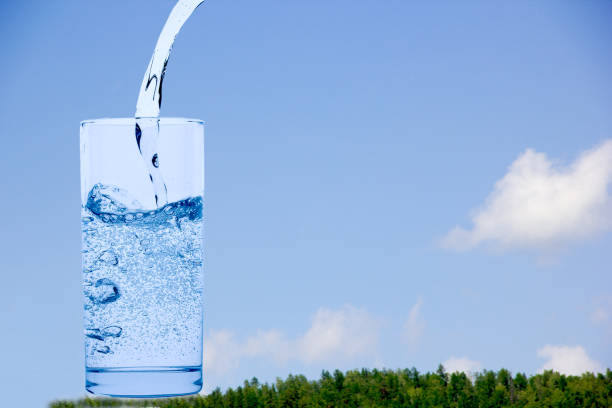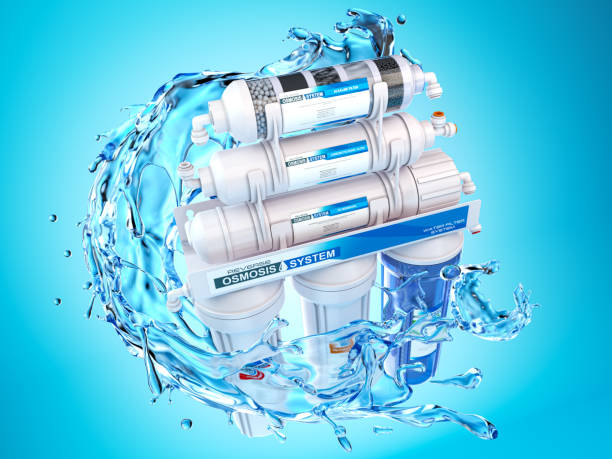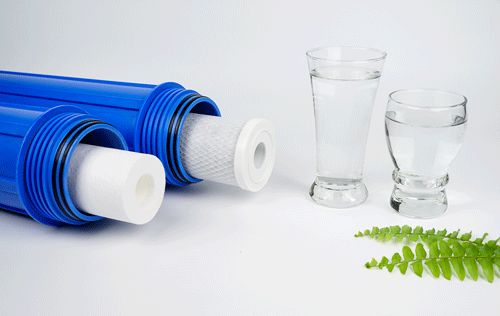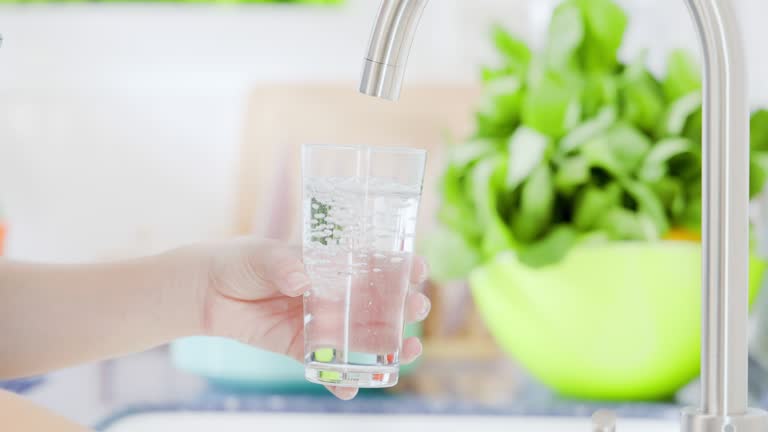In modern life, healthy drinking water has become the focus of people's attention. As the first line of defense for healthy drinking water, water purifiers play a vital role.

Through a series of filtration and purification processes, water purifiers can remove impurities, heavy metals, bacteria, viruses and other harmful substances in water to ensure the safety of drinking water. Whether it is a home or an office, installing a water purifier can provide us with pure and safe drinking water and effectively prevent the potential threat of water pollution to health.
At the same time, water purifiers can also improve the taste and quality of water. Purified water is clearer and sweeter, allowing people to enjoy a better taste experience in the process of drinking water. This is undoubtedly an important consideration for people who pay attention to the quality of life.

In addition to ensuring the safety of drinking water, water purifiers can also help us save water. Through filtration and purification, water purifiers can reduce waste and improve the utilization efficiency of water resources. With the increasing awareness of environmental protection today, choosing a water purifier is also an active response to the action of saving water, reducing emissions and protecting the environment.
Of course, choosing a suitable water purifier is also crucial. Water purifiers of different brands and models differ in filtration effect, service life, maintenance cost and other aspects. Therefore, when buying a water purifier, we need to make comprehensive considerations based on our actual needs and budget, and choose a water purifier that is cost-effective and suitable for us.
As the first line of defense for healthy drinking water, the importance of water purifiers is self-evident. We should fully realize the role of water purifiers in ensuring drinking water safety, improving water quality and taste, and saving water, and take active measures to provide healthy and safe drinking water for ourselves and our families.
The standards that water filtered by a water purifier can reach mainly depend on the type of water purifier, filtering technology and its maintenance. Generally speaking, water filtered by a water purifier will significantly improve water quality, but the specific standards achieved may vary depending on the model and performance of the water purifier. The following are some common water quality standards after water purifier filtration:
1. General water quality standards

Appearance and odor: The filtered water should be colorless, transparent, free of suspended matter and sediment, and free of odor.
pH value: usually between 6.5-8.5 to meet people's drinking and living water needs, and it is also conducive to reducing the content of metal ions in water and ensuring human health.
Dissolved solids: including total hardness (generally not more than 450 mg/L) and dissolved heavy metals (such as lead, mercury, arsenic, cadmium, etc.), which should meet national standards.
Organic matter: such as total organic carbon (TOC), its content is generally required to be low to ensure the safety and taste of water quality.
Microbial indicators: Microbial indicators such as coliform group and total bacteria should be strictly controlled to ensure the hygienic safety of water quality. Generally speaking, the total bacteria count should be less than 100/mL.
2. Filtration effect of different types of water purifiers

Reverse osmosis (RO) water purifier:
Filtration effect: Reverse osmosis water purifier uses RO membrane for filtration, which can remove most impurities in water, including dissolved solids, organic matter, bacteria and viruses. Its filtration accuracy is extremely high, usually up to 0.0001 microns, so the purity of filtered water is very high, close to the standard of pure water.
Water quality standard: The water filtered by reverse osmosis water purifier usually meets the above general water quality standards, and may reach higher purity standards.
Ultrafiltration (UF) water purifier:
Filtration effect: The ultrafiltration water purifier uses UF membrane for filtration, which can remove harmful substances such as mud, rust, bacteria and organic matter in the water, but will retain some minerals and trace elements.
Water quality standard: Although the water filtered by the ultrafiltration water purifier is not pure water, its water quality has been significantly improved. While retaining minerals, most harmful substances are removed, so the water quality still meets the safe drinking standards.
Nanofiltration (NF) water purifier:
Filtration effect: The filtration accuracy of the nanofiltration water purifier is between reverse osmosis and ultrafiltration, and it can remove some minerals and harmful substances.
Water quality standard: The water filtered by the nanofiltration water purifier is not pure water either, but its water quality has been significantly improved compared to the raw water. While removing some harmful substances, some minerals that are beneficial to the human body may be retained.
3. Precautions
The filtration effect of the water purifier will gradually decrease over time, so the filter element needs to be replaced regularly to ensure the filtration effect and water quality safety.
The water quality of water sources in different regions may vary, so when choosing a water purifier, you should choose it according to the local water quality and personal needs.
In addition to the filtering effect of the water purifier itself, you also need to pay attention to the installation, use and maintenance of the water purifier to ensure the safety of water quality.
In summary, the standards that water filtered by the water purifier can reach are multifaceted, including appearance, odor, pH value, dissolved solids, organic matter and microbial indicators. The specific standards achieved depend on the type of water purifier, filtering technology and its maintenance. When choosing and using a water purifier, it is recommended to comprehensively consider personal needs and water quality and follow the relevant use and maintenance guidelines.






 How to choose a filtered water purifier: help you buy the best water purifier! Keep your water as pure as it can be!
How to choose a filtered water purifier: help you buy the best water purifier! Keep your water as pure as it can be!
 Analysis and solutions to the causes of reverse osmosis membrane fouling
Analysis and solutions to the causes of reverse osmosis membrane fouling
 Do you know how to extend the life of your reverse osmosis membrane?
Do you know how to extend the life of your reverse osmosis membrane?
 How much do you know about ultrafiltration technology and ultrafiltration membranes?? Ultrafiltration Knowledge Points Collection, you deserve it!
How much do you know about ultrafiltration technology and ultrafiltration membranes?? Ultrafiltration Knowledge Points Collection, you deserve it!